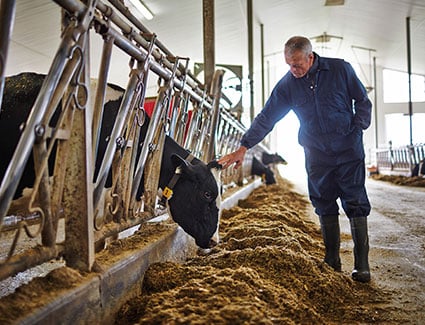A Low-Glycemic Response For Consistent Equine Performance
Nutrition science case study
Challenge
When a manufacturer of horse food products approached nutritional scientists at Cargill about a new product targeting owners of high-performance horses, enhanced equine performance and health topped the list of requirements for the feed. Specifically, the challenge was to formulate a product that would produce a sustained level of energy – needed for consistent animal performance – while having no negative effects on animal health.
Approach
Tapping their vast knowledge of the nutritional needs of animals and their understanding of the nutrients contained in a wide range of raw materials, Cargill nutritional scientists identified a potential solution: a co-product remaining after corn has been processed for human food applications. The researchers conducted extensive tests – in animals and in the laboratory – to determine how horses would digest and metabolize feed formulated with the ingredient.
Their tests found that the ingredient produced a lower glycemic response than other feeds — especially those made with oats. A lower glycemic response was precisely what was needed for a more precise, predictable energy supply to fuel consistent performance. The lower glycemic response also minimized repeated glycemic “peaks,” which research has shown may affect joint development in young horses. In addition, the researchers found that horses fed the dry corn formulation did not suffer the negative effects of grain overload.
Results
Cargill’s deep nutritional science knowledge, coupled with the use of sophisticated animal and laboratory testing, helped the horse feed manufacturer launch a high-performance product that strengthened its reputation for innovation and increased its market share.

Providing better nutrition for better lives with animal nutrition solutions that help producers feed a growing world.

Find an animal nutrition career path that allows you to grow and help us provide better nutrition for better lives.
